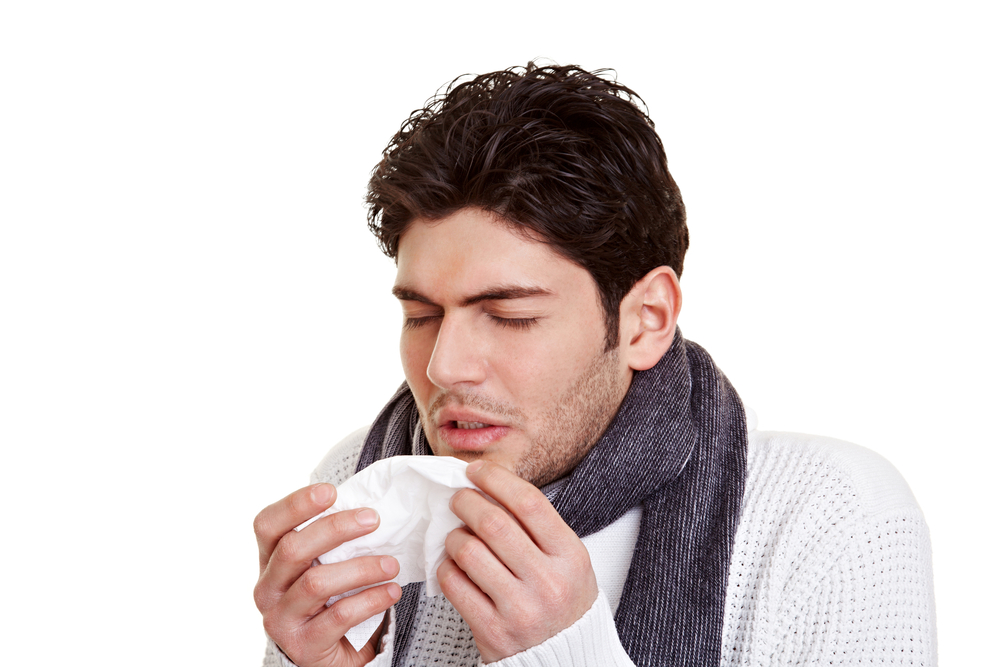Allergic reactions are caused by a substance allergen. An allergic response to specific allergens includes allergic rhinitis or hay fever. In seasonal allergic rhinitis, pollen is the most common allergen.

Allergic reactions are caused by a substance allergen. An allergic response to specific allergens includes allergic rhinitis or hay fever. In seasonal allergic rhinitis, pollen is the most common allergen.
Seasonal allergies. This type of allergic rhinitis is more ordinarily known as hay fever, and occurs in response to outdoor allergens like pollen. The most common ones are pollens from wind-pollenated plants like grasses, trees, and weeds.
Perennial allergies. This type, in reaction to indoor substances, exists at any time during the year.
Common symptoms of allergic rhinitis:
After coming into contact with an allergen, you’ll generally feel one or more of these symptoms instantly. Some indications like recurrent headaches and fatigue may only happen after long-term contact with allergens.
Physical exam is the possible thing you need if you have minor allergies, however, to figure out the best prevention and treatment plan for you, your doctor may carry out certain tests.
One of the most common is a skin prick test where the doctor puts numerous substances onto your skin to see how your body responds to each one and if a small red bump shows, it means you’re allergic to a substance.
Blood test or radioallergosorbent test (RAST) is also a common type of test which measures the amount of immunoglobulin E antibodies to specific allergens in your blood.
Allergic rhinitis can be treated in several ways such as medications, along with home remedies and possibly alternative medicines but before trying any new treatment measure for allergic rhinitis, talk to your doctor.
Antihistamines. Antihistamines treat your allergies by preventing your body from making histamine.
Here are some popular over-the-counter (OTC) antihistamines:
Decongestants. You can use decongestants commonly for no longer than three days to get rid of a stuffy nose and sinus pressure. A rebound effect means that once you stop your symptoms will essentially get worse, will occur if you use them for a longer time.
The following are the popular OTC decongestants:
Eye drops and nasal sprays. These can help get rid of itchiness and other allergy-related symptoms for a short time but can also cause a rebound effect if some particular eye drops and nose drops are overused.
Corticosteroids can be in used for inflammation and immune responses, and this never causes a rebound effect. Also, steroid nasal sprays are beneficial way to manage allergy symptoms so this commonly suggested for long-term use.
Immunotherapy. If you have severe allergies, your doctor may vouch for immunotherapy or allergy shots. To control your symptoms, you can use this treatment plan in union with medications. These shots reduce your immune response to certain allergens over time.
Sublingual immunotherapy (SLIT). SLIT includes placing a tablet that contains a mixture of some allergens under your tongue and works in the same way to allergy shots but without an injection.
Overview and FactsTypes and SymptomsDiagnosis & MedicationsOverview and Facts Tetralogy of Fallot is a congenital heart defect that affects the [...]
Overview and FactsTypes and SymptomsDiagnosis & MedicationsOverview and Facts Trichinosis, also known as trichinellosis, is a parasitic infection caused by [...]
Overview and FactsTypes and SymptomsDiagnosis & MedicationsOverview and Facts Trigeminal neuralgia is a neurological condition characterized by severe facial pain. [...]